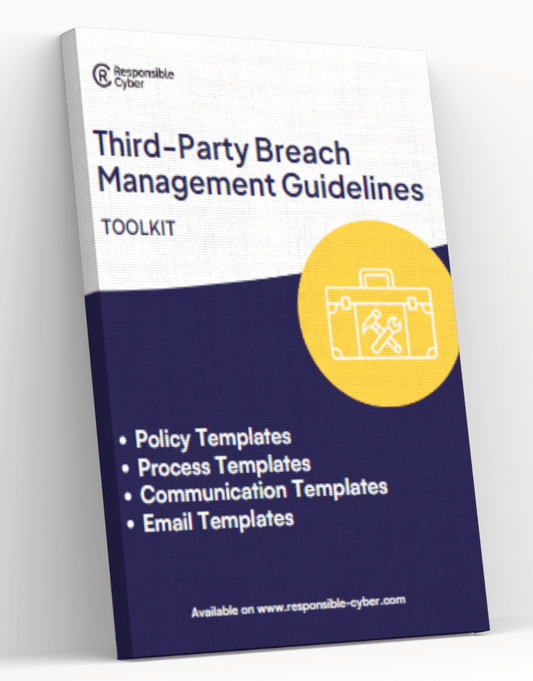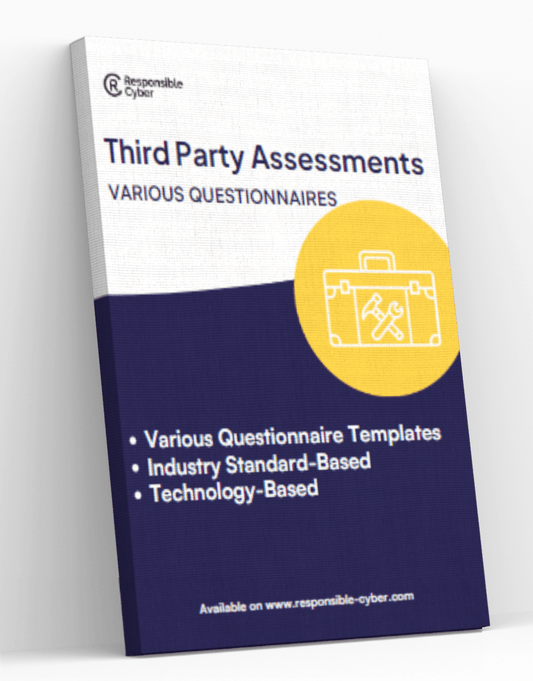Top 10 Third-Party Risk Management Tools for 2024

Selecting the right Third-Party Risk Management (TPRM) tool is crucial for maintaining robust security and compliance. Here's a detailed review of the best TPRM tools available in 2024, including features, pros, cons, and pricing.
1. RiskImmune by Responsible Cyber
Features: Comprehensive risk assessment, automated compliance checks, real-time threat intelligence.
Pros: User-friendly, automation-focused, robust analytics.
Cons: Newer in the market, fewer reviews.
Pricing: Custom pricing.
2. Archer Third-Party Governance
Features: Customizable controls, risk profile metrics, advanced visualization.
Pros: Excellent SLA management, AI-powered features.
Cons: Complex pricing, requires other Archer solutions for best use.
Pricing: $30,000 - $50,000 per year.
3. BitSight Security Ratings
Features: Continuous monitoring, real-time reporting, customizable workflows.
Pros: Integrates well with other tools, comprehensive reporting.
Cons: Limited community support, data filtering issues.
Pricing: Starts around $20,000 per year.
4. ProcessUnity
Features: Automated workflows, vendor performance reviews, pre/post-contract due diligence.
Pros: Highly customizable, strong reporting features.
Cons: Expensive, limited report visualization.
Pricing: Starts at $15,000 per year.
5. SecurityScorecard
Features: Continuous monitoring, security ratings, intuitive user interface.
Pros: User-friendly, comprehensive vendor risk profiles.
Cons: Higher pricing tiers for advanced features.
Pricing: Starts around $35,000 per year.
6. Prevalent
Features: Vendor assessment, risk scoring, workflow management.
Pros: Lifecycle management, excellent support.
Cons: Complex setup, high cost for advanced features.
Pricing: Starts at $30,000 per year.
7. OneTrust Vendorpedia
Features: Centralized platform, automated assessments, compliance tracking.
Pros: Comprehensive compliance management, easy to use.
Cons: High cost, ongoing maintenance needed.
Pricing: Custom pricing.
8. Venminder
Features: Risk assessment, due diligence, document management.
Pros: Easy setup, strong customer support.
Cons: Limited advanced features, higher premium service costs.
Pricing: Contact vendor for pricing.
9. RiskRecon
Features: Automated assessments, continuous monitoring, detailed insights.
Pros: Strong automation, actionable insights.
Cons: Limited tool integrations, high cost for full features.
Pricing: Starts at $25,000 per year.
10. UpGuard
Features: Cyber risk ratings, vendor management, security assessments.
Pros: Affordable, easy deployment.
Cons: Limited features compared to larger competitors.
Pricing: Starts at $15,000 per year.
Conclusion
Choosing the right TPRM tool depends on your organization's specific needs, budget, and complexity. Larger enterprises may benefit from comprehensive solutions like Archer and BitSight, while smaller businesses might find tools like Venminder and UpGuard more suitable. Evaluate each tool's features and pricing to find the best fit for your TPRM strategy. For more detailed information, you can refer to resources from TechRepublic and CSO Online.







